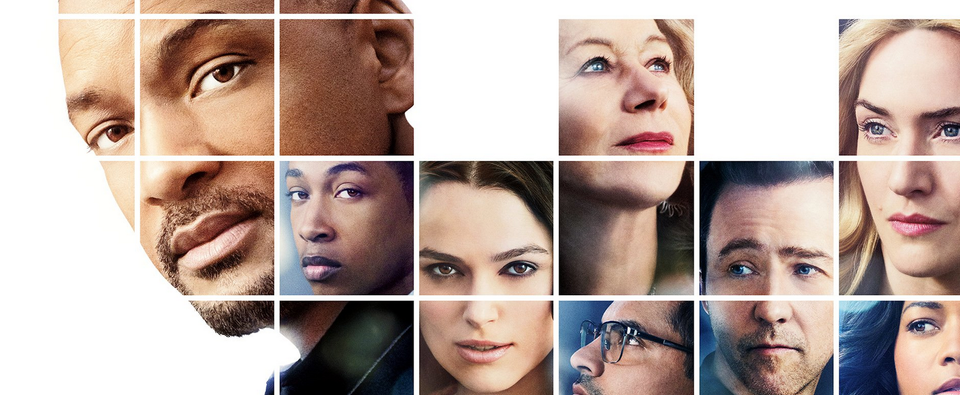Theme as a Guidepost
Theme matters. But I reckon writers don't need to use theme as a hammer to drive home a message. That doesn't mean it isn't there...

While embarked my personal writing journey, I’ve read a fair few books on technique and watched more videos than probably wise. As expected, the amount of advice is endless and the quality is highly variable. I do have one rule when deciding if the source of the advice is going to be reputable – I look up their work.
I could spend all day on YouTube watching craft videos. There’s one channel I subscribed to because it seems like their videos were authoritative. Sadly, the content did not match the promises made. Recently they featured the guy with no produced screenplays as an authority on screenwriting on the basis that he worked in a number of writers’ rooms as an assistant. I didn’t watch his videos. He wasn’t qualified.
But one consistent feature of writing advice in general is the importance of theme. Your work should carry with it an idea, which you, the writer, must cling to fervently to better inspire your fellow man. It isn’t unreasonable advice. Theme can act as a compass for the writer and guide them through difficult decisions towards that fitting ending.
However, something I fundamentally disagree with is the idea that a writer must begin with theme. Writing to a thesis to demonstrate a point, to lecture the reader, isn’t something I want to do. It isn’t why I read so isn’t why I write. I’m here for how the character overcomes the problem - or not - and grows as a person - or not.
I recently finished an incredible science fiction novel, Remnant Population. The theme isn’t jammed down your throat at the start, but it is clear throughout. In the story, the young do not value the old and an old lady decides to stay behind when the colony world she lives on is abandoned. She runs into the planet’s native intelligence species and they value her as a ‘nest guardian’ due to her age and wealth of experience. The theme informs the story which informs the character which shapes the plot. She begins sad and underappreciated, and ends up an ambassador for the entire human race. Wonderful.
There are a few creative works which quite boldly shove the theme right into your face, although you might not realise it at first.
One of the first novels intended for adults which I read was Alexei Panshin’s 1968 novel Rite of Passage. It follows a girl, Mia, as she grows up and comes to understand the world she lives in and its morality and ethics. While it is not a famous book these days, it did win the 1969 Nebula Award. It beat Stand on Zanzibar and Do Androids Dream of Electric Sheep, and was nominated for the Hugo back when that was meaningful.
Panshin does something I haven’t seen before or since: his epigraph is repeated at the end of the novel. Shakespeare’s sonnet 94. I didn’t think too much to the epigraph back when I was 15 but after the novel’s conclusion and the repetition of the epigraph, the theme came sweeping out of the darkness and smacked me around the head. Here are the critical lines from the sonnet:
“For sweetest things turn foulest by their deeds,
Lilies that fester smell far worse than weeds.”
Rite of Passage isn’t simply a coming-of-age story. The whole thing builds up to a warning that no matter how mighty or moral your civilization is, your acts are the things that define you. The story’s conclusion has the inhabitants of Mia’s generation ship decide to destroy an entire planet for not sharing their values.
Panshin’s trick is not exactly subtle, but it is effective. A more nuanced approach can be found in The Last of Us Part Two, of all places.
This piece will not discuss the plot of that game, nor its characters in detail, nor its featuring of trans issues. I may come back at some point to ruminate on heroes and villains in fiction and touch on Joel and Abby. Instead, I’m interested in how the game’s creators placed one of the stories most significant themes in plain sight.
The Last of Us Part One was notable for its story and for how fiercely it clung to its central theme for Joel’s character. We might reasonably ask what motivates Joel to be such a cold-blooded killer, especially at the game’s conclusion. Why does he kill so freely? Why does he slaughter his way through a facility packed with some of the few humans left uninfected, killing doctors and scientists to save a girl he isn’t related to, whose sacrifice could lead to the end of the apocalyptic pandemic?
Love. Joel is motivated by love. Throughout the story, we see that all of the women and girls that Joel loved were taken from him. His daughter, in the game’s first chapter. His wife, who is not present nor mentioned in that first chapter or ever. His partner and lover, Tess, dies early on. Joel knows that the price of love is eventual loss and that is the theme. When he goes kill-crazy to rescue Ellie, it is out of love and the fear of loss of the beloved.
In The Last of Us Part Two, the theme for Ellie is presented in the flashback. Curiously enough, it comes in the form of lyrics from Pearl Jam’s song Future Days. The song’s first two lines, in fact.
“If I ever were to lose you,
I’d surely lose myself.”
Future Days lyrics © Universal Music Publishing Group
Here is the theme from The Last of Us Part One back again, given words and presented to Ellie.
The impetus for Ellie’s story in The Last of Us Part Two is revenge for Joel’s murder. She loses Joel and she loses the run of herself. She loses a close friend and then her lover in the name of revenge. Then right at the end of the game, when final crowning victory is in her grasp and her enemy is in her hands, drowning in the warm Pacific Ocean, she flashes back again to Joel singing those two lines, and she understands she has lost herself and she lets her enemy leave.
There are many reasons why The Last of Us Part Two is controversial and the ending is one of them. Nonetheless, I think it works on a character and story level. Ellie isn’t Joel. She doesn’t have to walk his path. She doesn’t have to be the brutal, merciless killer Joel was. It isn’t who Ellie is. She chooses to be herself and passes the internal moral test and denies herself, and, by extension, the player, the final blessed moment of cathartic release, because this decision fits the story’s theme. The true theme: the price of hate is the loss of self.
Here's my breadcrumb. Theme is important, but it isn’t everything. It isn’t the skeleton of the story on which you build the muscles of character. It’s more like the nerves shot through the flesh, motivating and energising. Knowing your theme, finding it and sticking to it can give the story a real emotional core that your audience can connect to. Theme can tell you where to go and how to get there. But it doesn’t have to be the driver of the whole story.



